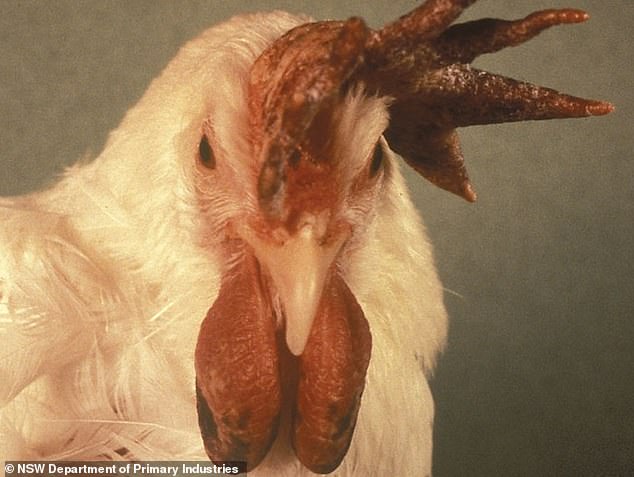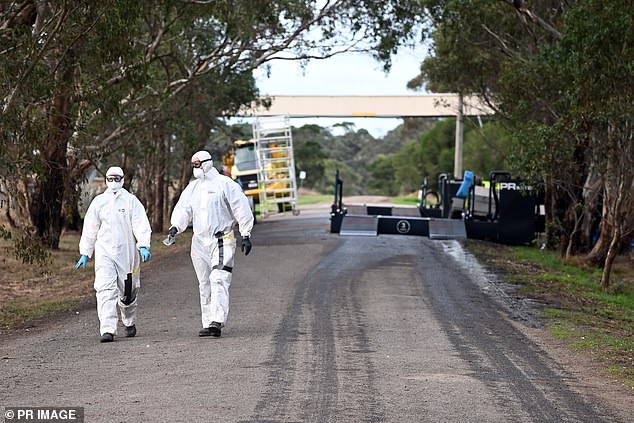Health authorities are battling to stop the spread of bird flu after the disease was detected on a farm in Sydney’s northwest.
The New South Wales Department of Primary Industries (DPI) confirmed on Wednesday that the contagious disease had been found at a commercial egg farm in the Hawkesbury region.
A biosecurity quarantine will see the farm closed and a control area established around the site to try to stop the spread of the disease.
The strain of bird flu found is H7N8 and differs from the H7N3 and H7N9 strains spreading in Victoria and the H5N1 strain causing concern around the world.
Stopping the possible spread of either strain has forced Victorian authorities to plan to cull more than a million chickens and ducks on contaminated farms.
Health authorities in New South Wales have quarantined an egg farm in Sydney’s Hawkesbury region after a strain of bird flu was detected at the site (pictured, Victorian authorities).
The state DPI believes the H7N8 strain is a “spillover” event that could possibly have been carried by wild birds.
He noted that the highly pathogenic disease spread rapidly and had a high mortality rate among poultry, requiring the closure of farms.
Consumers should not worry about supermarket eggs and poultry, and the outbreak does not pose a public health risk, the government said.
“The government will work closely with the industry to reduce the risk of spread and minimize any impact on egg supply,” a statement said.
Meanwhile, all poultry at the Golden Plains farm in Victoria will be humanely disposed of under veterinary supervision while movement controls remain in place near Terang, Meredith and Lethbridge, Victorian authorities said.
“We continue to work with affected producers and the poultry industry to respond to these detections through continued testing and careful biosecurity practices,” said state veterinary director Graeme Cooke.
“Movement restrictions are expected to be in place for several weeks and we are working with the industry to help poultry farmers with the logistical challenges they face.”
Most of the affected properties have chickens, but on June 13 a duck farm in the Golden Plains Shire that produces eggs and meat and was already quarantined was confirmed to have the virus.
Agriculture Victoria continues to assure consumers not to worry about eggs and duck meat products as they are safe to consume.

The state’s DPI believes the H7N8 strain, different from the strains spreading in Victoria, could have been carried to the farm by wild birds (pictured, infected chicken).
Six of the infected properties near Meredith have been confirmed to have the H7N3 strain of avian influenza and one infected property near Terang has the H7N9 strain.
Neither is the H5N1 strain that has infected billions of wild and farm animals around the world, raising fears of human transmission.
The World Health Organization revealed on June 5 that a two-year-old girl from Melbourne who had recently traveled from India had to be admitted to intensive care in March after falling ill with the H5N1 strain.
The case was confirmed by local health authorities in May.
While it was possible for humans to contract bird flu viruses when they were in direct contact with infected animals, Agriculture Victoria said the current risk to the public remained extremely low.

